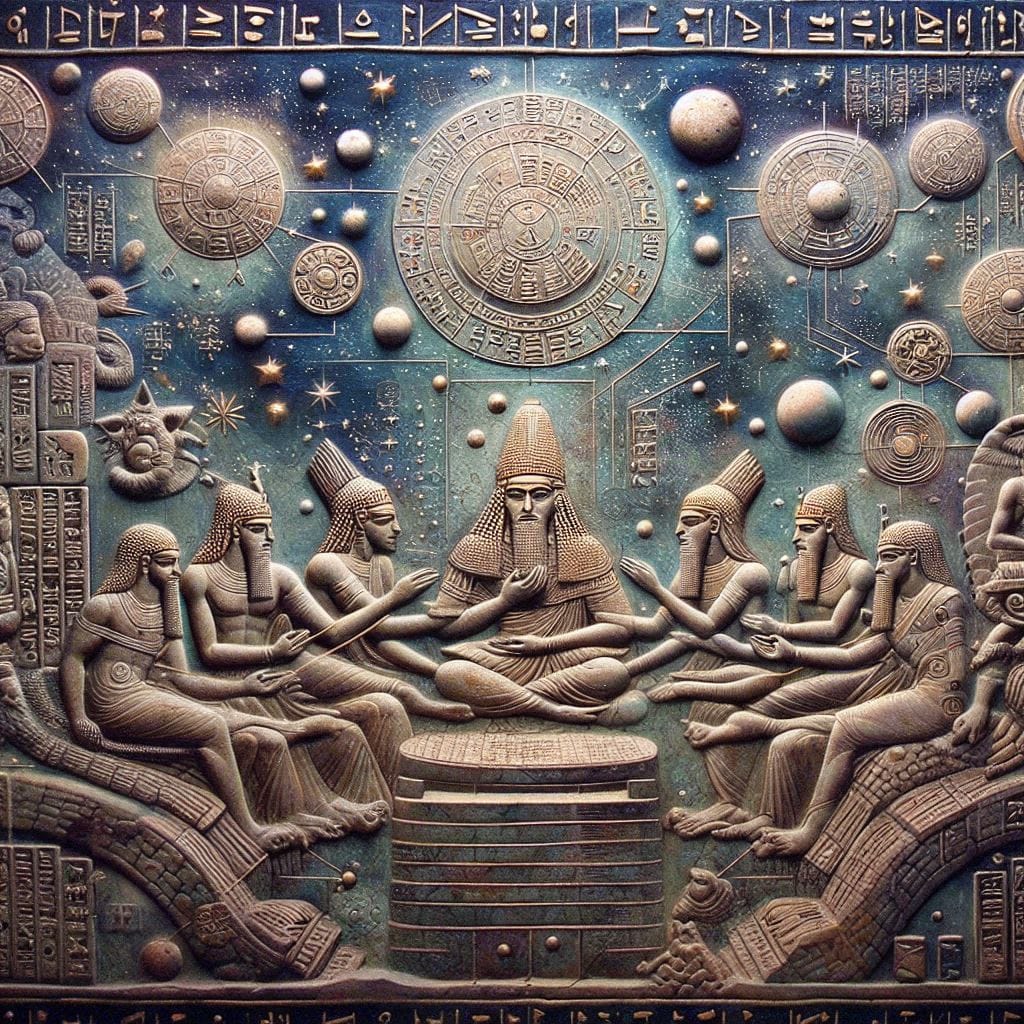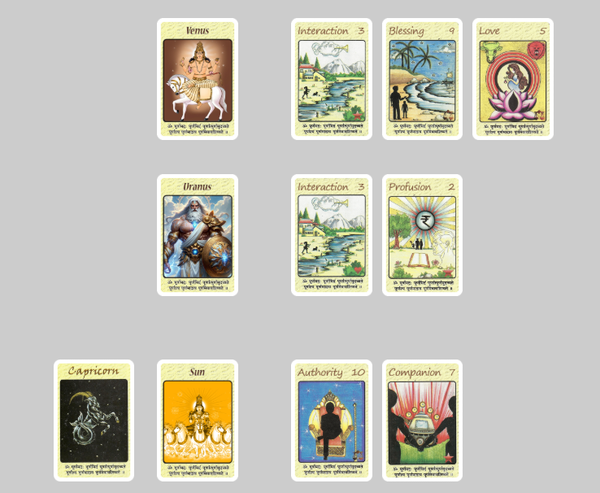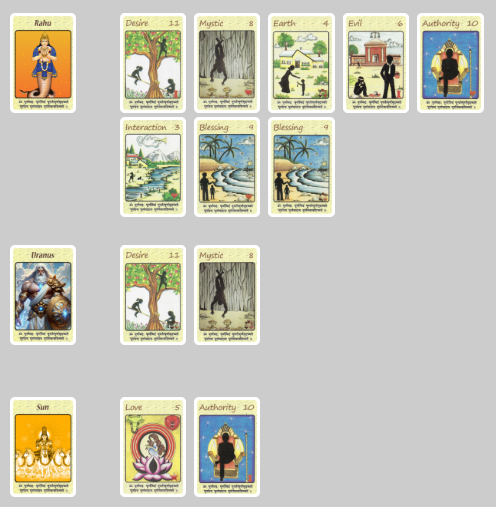The Seven Tablets - Marduk’s Celestial Architecture: The Fifth Tablet of the Enuma Elish
Explore the Fifth Tablet of the Enuma Elish: Marduk's meticulous arrangement of the cosmos, setting the stage for time itself. #occultsanctum #EnumaElish #Marduk #BabylonianMythology #CosmicOrder #AncientLegends #DivineCreation

Have you ever wondered how ancient Mesopotamians envisioned the organization of the cosmos? The Fifth Tablet of the Enuma Elish reveals the awe-inspiring work of Marduk—the supreme god who not only defeated chaos but also meticulously arranged the celestial order, setting the stage for time itself.
Laying the Foundations of the Heavens
After emerging as the cosmic victor, Marduk turned his divine attention to shaping the universe. In his infinite wisdom, he began by establishing the stations for the great gods. These were not merely symbolic markers; they were the very anchors of the heavens. Among his first tasks was to fix the images of the stars—much like those we recognize today in the zodiac. Marduk organized the celestial bodies into a coherent structure, ensuring that each star had its rightful place.
He ordained the year by dividing it into sections, and for the twelve months, he assigned three special stars to serve as their guiding lights. To ensure that the paths of these heavenly bodies remained true, he founded the station of Nibiru, creating precise boundaries that kept the cosmic dance from faltering. Alongside him, the stations of Bêl and Ea were also set, reinforcing the stability of the heavens.
The Mechanics of Time and Space
With the celestial stations in place, Marduk turned to the task of defining time. He opened vast, imposing gates on both sides of the heavens, strengthening the cosmic bolt that secured the celestial expanse. At the very center, he fixed the zenith—the highest point in the sky—which would serve as a focal marker for all other measurements.
Entrusting the Moon-god with the dominion of night, Marduk ensured that the cycles of day and night were clearly distinguished. The Moon-god was charged with determining the days, a responsibility that would come to govern the rhythm of time. Each month was ceremoniously inaugurated by the rising light of the moon, whose phases dictated the passage of time—from the first light at the beginning of the month to the division of days marked by the appearance of horns and the crowning glory of celestial bodies.
The Sacred Instruments of Order
Beyond merely fixing the stars and setting the calendar, Marduk’s creative genius extended to the very instruments that symbolized celestial authority. He fashioned a magnificent bow, a symbol of the cosmic order, and dedicated a station for it in the heavens. This bow was not only a tool of war against chaos but also a marker of divine order—its names, such as “Long-wood” and “Bow-star,” celebrated its power and beauty.
The gods themselves marveled at Marduk’s work. As they beheld the precise placement of the bow, the opening of the great gates, and the brilliant arrangement of the stars, their praise filled the celestial assembly. In a moment of divine affirmation, Anu—the father of the gods—raised his voice in the assembly, bestowing honor and recognition upon Marduk for his unparalleled achievement.
The Eternal Legacy of Cosmic Order
By the end of the Fifth Tablet, Marduk had not only subdued the chaotic forces of his time but had also restructured the cosmos in a way that resonated through the ages. His actions set the boundaries of the heavens, defined the courses of celestial bodies, and established the cycles of time that govern our world even today.
Marduk’s meticulous arrangement of the cosmos was more than an act of creation—it was the laying down of an eternal order. With each fixed star, every measured month, and every sacred instrument in its rightful place, the Fifth Tablet reminds us that the ancient myths were as much about instilling order from chaos as they were about the triumph of divine will over disorder.



